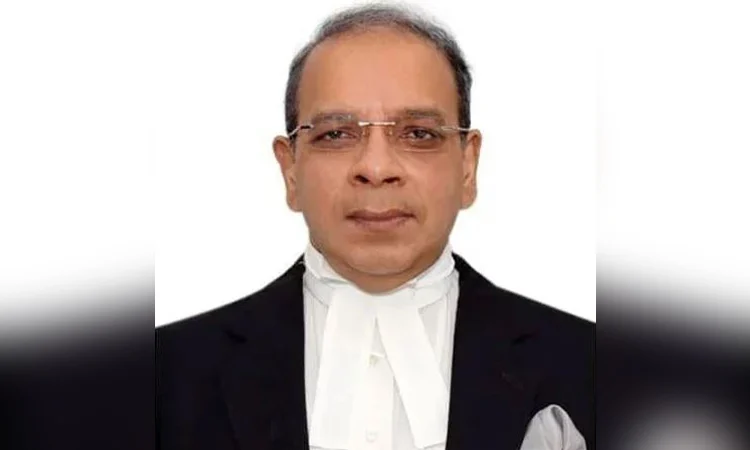News Flash
News Flash

DHAKA, Feb 17, 2025 (BSS) – Chief Justice Syed Refaat Ahmed today
stressed the need for giving importance on harmonization of the
judiciary and the executive during their separation.
“The judiciary exists to uphold rights, deliver justice, and ensure that no
person irrespective of status remains without redress. The executive, on
the other hand, is tasked with implementing policies, maintaining
stability, and facilitating governance. These functions, while separate,
must harmonize, and not be in conflict with each other,” he said.
He was speaking as the chief guest at the Deputy Commissioners’
Conference at auditorium of the Supreme Court of Bangladesh.
The Chief Justice said a district where the judiciary functions
independently, fairly, and efficiently is one where confidence in the legal
system flourishes.
And where the administration respects and supports this independence,
governance reaches its highest moral standing, he continued.
“Our Constitution enshrines the separation of powers, yet practical
governance requires seamless coordination. It is here that I seek your
vigilance, wisdom, and cooperation,” he said.
Article 112 of the Constitution mandates all executive and judicial
authorities to support the Supreme Court and follow its orders, he said.
“No government directive, circular, or notification can override or delay
a Supreme Court order. This Article in so far as relates to your role in
executing judicial directives, assisting in case management and
facilitating logistical necessities for the courts is fundamental,” he said.
Cabinet Secretary Dr Sheikh Abdur Rashid addressed the DC
Conference while Registrar General of the Supreme Court Dr. Aziz
Ahmed Bhuiyan gave the address of welcome.
The divisional commissioner of Sylhet division, DCs of Jashore and
Natore district also spoke on the occasion.
The Chief Justice said he was deeply aware of the immense responsibility
placed upon his shoulders when he had the distinct honor of taking oath
as the 25th Chief Justice of Bangladesh.
“This role is not merely a position of leadership but a solemn trust
bestowed by the people of this nation to uphold fairness, equity, and
ensure access to justice for all, irrespective of their status or
circumstances,” he said.
To this end, on September 21 last, he said that he unveiled a
comprehensive Roadmap for Judicial Reform.
“This initiative is a cornerstone of my vision to strengthen our judiciary
and its capacity to serve the people with integrity and efficiency,” he
said.
He said that the judiciary has had a head start from August 2024
onwards to devising its own internal reformist policy blueprint and has
provided substantial input that has informed much of the legal
framework has institutional independence that is now being placed
before the Nation.
The Deputy Commissioner, in our administrative structure, embodies the
convergence of governance, public service, and justice, he opined.
“You (DCs) are the bridge between the executive authority and the
people, bearing the delicate task of maintaining law and order,
overseeing development initiatives, and upholding the dignity of the
State,” he said.
“Yet, an indispensable aspect of your role, which I wish to emphasize
today, is your interface with the judiciary. The district judiciary and the
district administration are two pillars standing in close proximity, each
distinct in function yet inextricably linked in purpose,” he added.
The Chief Justice said that the Deputy Commissioners (DCs) play a
pivotal role in ensuring justice reaches the most vulnerable segments of
society through their active involvement in district legal aid committees,
jail inspections, and collaboration with the judiciary.
As active members of the District Legal Aid Committee, DCs alongside
District Judges are responsible for facilitating access to justice for
underprivileged individuals, he remarked.
Their leadership ensures that legal aid services are effectively delivered,
case backlogs for indigent litigants are addressed, and public awareness
about free legal assistance is enhanced, he said.
In jail inspections, DCs, alongside district judges, ensure that prisoners’
rights are upheld, detentions are lawful, and the living conditions in
correctional facilities meet human rights standards, he said.
Regular inspections prevent overcrowding, ensure the timely release of
detainees eligible for bail, and reinforce accountability within the prison
system, he mentioned.
“In law enforcement, DCs act as key coordinators between the judiciary,
law enforcement agencies, and the local administration. Their role in
executing judicial orders, ensuring timely investigation and prosecution,
and maintaining law and order in tandem with district judges and
magistrates fosters a justice system that is efficient, responsive, and fair,”
he said.
A well-coordinated effort between the administration and judiciary
strengthens public trust and upholds the rule of law at the grassroots
level, he opined.
“The current situation demands that Deputy Commissioners (DCs) take
firm measures to maintain law and order, ensuring stability and public
safety. It is expected that they act decisively and responsibly to uphold
the rule of law, thereby contributing collectively to national security,” he
said.
At the outset of the conference, the Chief Justice recalled with due honour
the memory of the martyrs of 1971, whose sacrifices gave us an
independent nation, he said.
He also remembered the determined spirit of the student-led revolution
of July and August 2024, which played a pivotal role in ending
oppression and restoring justice, equality, and humanity.